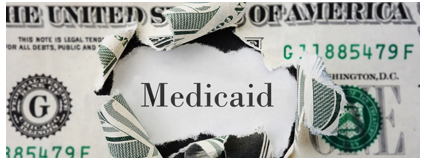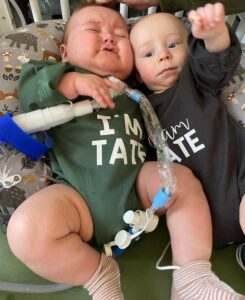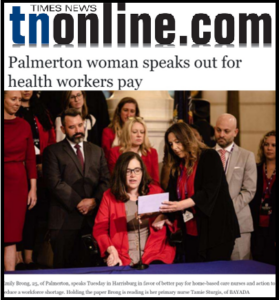
Earlier this year, New York Governor Andrew Cuomo announced his plan for the 2020 state budget, including a 3.6% planned budgeted increase to overall health care spending. When proposed tax revenue estimates came in much lower than anticipated, the administration decided to cut approximately $550 million of this increase. But after strong advocacy efforts from many health care groups across the state, the Governor and his administration changed their position, keeping the $550 million Medicaid increase in the budget.
BAYADA’s Government Affairs Office (GAO) participated in several conference calls with the New York State Home Care Association (HCA) to learn more about Medicaid spending, which accounts for 42% of the budget, and what we and our office staff, clients, and families can do to advocate for higher wages for home care nurses through increased reimbursement rates.
Currently, New York’s Medicaid reimbursement rates are well-below surrounding states, so many caregivers are discouraged from entering—or staying in—the home care industry due to abysmal wages. It also impacts BAYADA because the rates are currently so low that we are currently not be able to provide sustainable Medicaid-based home care in the state and pay caregivers an appropriate wage.
As part of a larger national trend, New York did vote to increase the statewide minimum wage to $15 per hour incrementally through 2021. New York understands that home care providers that do provide Medicaid-based services would not be able to comply with this minimum wage mandate and stay sustainable under current rates. The final budget did include an additional $1.1 billion to support the cost of raising minimum wage for health care workers. BAYADA is currently advocating for similar increases in other GAO states that have increased the mandatory minimum wage, but have not increased reimbursement rates in tandem. Medicaid rates must keep pace with the rising cost of living and increased wage mandates to ensure that providers can stay in business, and to ensure that vulnerable New Yorkers can have access to quality home care.







